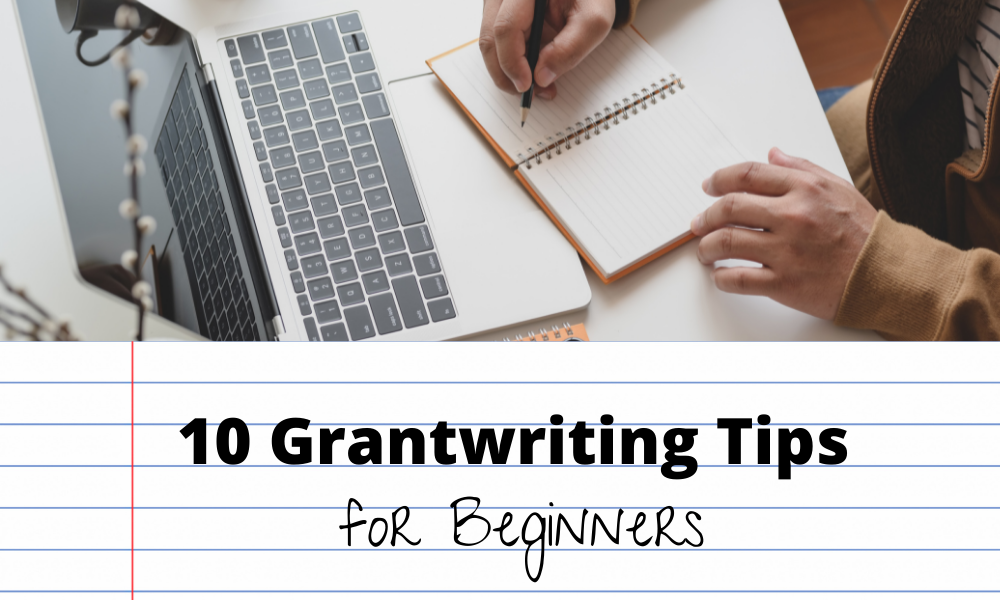If you are new to grant writing or have not been having any luck winning grants for your nonprofit, GrantWriterTeam wants to help you reach your full potential as a grant writer. For this reason, GrantWriterTeam will be sharing 10 grant writing tips for beginners today.
1. Follow directions
Not all grants are the same. Each grant will have its own set of directions for how to properly apply. Some require a Letter of Intent/ Inquiry (LOI), whereas others might ask that the applicant provide a curriculum plan in their proposal. It is important to read all the guidelines, especially when it comes to more extensive proposals.
You want to make sure you are following all the formatting directions and pay careful attention to requirements and any application guidance. If you miss one step or don’t follow the instructions completely, the funding source will likely pass on giving funding to your organization.
2. Be detailed
As a rule, the more detail you include in your responses, the better. Funding sources want to get as complete a picture of your organization and your goal as they can. This will allow them to make an informed decision. Grant writers are far more likely to pass over requests that are nondescript and use vague wording. Specifically, when it comes to your organization’s budget, it is important to be very detailed. You want to show exactly what your financial situation is, as well as how you plan to use the money if you win the grant.
3. Be concise
When applying for grants, it is also important to remember to be as clear and concise as possible. This may seem conflicting with the previous tip but they really go hand-in-hand. While it is crucial to be detailed when it comes to giving all the information they asked for, it is not necessary to give more than what was required.
You might think it will give you an advantage over other applicants to provide additional information, but most grant funders do not want to read through any more than they have to. Grantmakers are reading a lot of proposals, and they may view nonessential material as a nuisance.
4. Show passion
Passion and enthusiasm may be the most important ingredient in a successful grant proposal. Your passion for your cause needs to jump off the page! Be excited! Show them how much you care about your organization or cause and speak from the heart.
Your proposal needs to be so alive so that the reader can feel what you feel and want to help you. If your proposal can connect with someone on an emotional level, it will carry far more weight and stand out that much more!
5. Differentiate yourself
As stated previously, funding sources will be reading numerous grant proposals. For this reason, it is imperative that you find a way to make your proposal stand out by differentiating yourself from other organizations applying. You want to show that your organization is deserving of the funding and will make a greater impact on the community overall.
6. Do the Research
Part of the grant writing process is researching everything about the organization funding the grant. Naturally, you should also thoroughly research the grant itself. This allows you to get all the questions you need to provide answers for and the necessary documents you may be required to add to support your grant application. It would help if you likewise took note of all the keywords or phrases you might need to keep on referring to in your application.
You can find some successful research stories here at GrantWriterTeam.com.
7. Create Folders
Be organized. Have all of the information you need where you need it. Have all the needs and information regarding your target communities at your fingertips. You must show that your goals are going to remediate the needs of the community and your target demographic.
8. Make Sure You Are Eligible
One of the most important grant writing tips to keep in mind is to make sure you are eligible before even applying. All grants come with eligibility requirements. Be sure to read these requirements thoroughly before committing to writing a grant proposal. Don’t apply for anything that you’re not eligible for entirely.
9. Review It One Last Time
Before you submit your grant application, make sure to give it one last look over. This should include checking spelling, calculations, and due dates, as well as the submission package to make sure all required
forms and necessary attachments are included, page number and font size requirements are followed, and all documents are in the correct order.
10. Follow Up
Your work is not complete just because you have sent out your application. You can still reach out to your grantor to engage them and convince them further. However, please don’t rush the follow-up, wait a few weeks before reaching out to the grantor. Also, don’t wait for the investor to reach out to you first. Truth is they might not. Additionally, you can keep the conversation going with calls, texts, and emails. Consistent and well-timed follow up will increase the odds of raising the funds you need.
Good luck and happy writing! We hope these grant writing tips will help!

Recent Comments